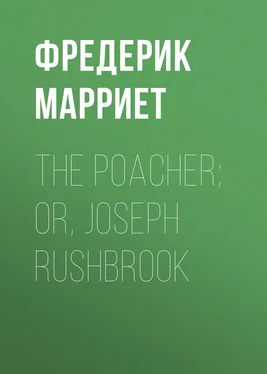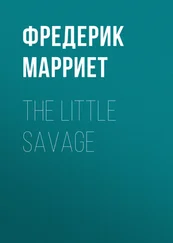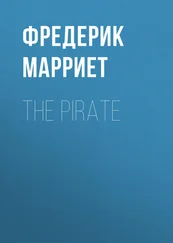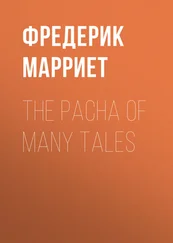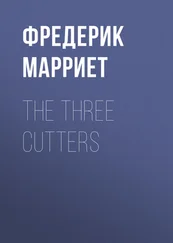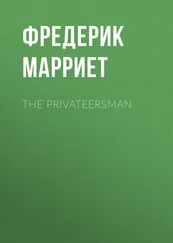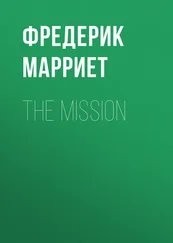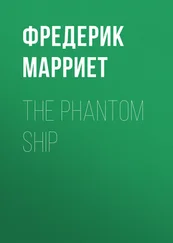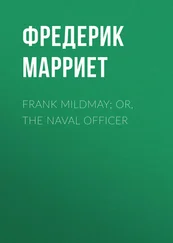Фредерик Марриет - The Poacher; Or, Joseph Rushbrook
Здесь есть возможность читать онлайн «Фредерик Марриет - The Poacher; Or, Joseph Rushbrook» — ознакомительный отрывок электронной книги совершенно бесплатно, а после прочтения отрывка купить полную версию. В некоторых случаях можно слушать аудио, скачать через торрент в формате fb2 и присутствует краткое содержание. Жанр: foreign_prose, literature_19, foreign_antique, на английском языке. Описание произведения, (предисловие) а так же отзывы посетителей доступны на портале библиотеки ЛибКат.
- Название:The Poacher; Or, Joseph Rushbrook
- Автор:
- Жанр:
- Год:неизвестен
- ISBN:нет данных
- Рейтинг книги:4 / 5. Голосов: 1
-
Избранное:Добавить в избранное
- Отзывы:
-
Ваша оценка:
- 80
- 1
- 2
- 3
- 4
- 5
The Poacher; Or, Joseph Rushbrook: краткое содержание, описание и аннотация
Предлагаем к чтению аннотацию, описание, краткое содержание или предисловие (зависит от того, что написал сам автор книги «The Poacher; Or, Joseph Rushbrook»). Если вы не нашли необходимую информацию о книге — напишите в комментариях, мы постараемся отыскать её.
The Poacher; Or, Joseph Rushbrook — читать онлайн ознакомительный отрывок
Ниже представлен текст книги, разбитый по страницам. Система сохранения места последней прочитанной страницы, позволяет с удобством читать онлайн бесплатно книгу «The Poacher; Or, Joseph Rushbrook», без необходимости каждый раз заново искать на чём Вы остановились. Поставьте закладку, и сможете в любой момент перейти на страницу, на которой закончили чтение.
Интервал:
Закладка:
“Merciful Heaven!” exclaimed Jane, “what can be done?”
“There is no proof;” muttered Rushbrook.
“Yes, there is,” observed Joey, “I left my bag there, when I stooped down to—”
“Silence!” cried Rushbrook. “Yes,” continued he, bitterly, to his wife, “this is your doing; you must send the boy after me, and now there will be evidence against me; I shall owe my death to you.”
“Oh, say not so! say not so!” replied Jane, falling down on her knees, and weeping bitterly as she buried her face in his lap; “but there is yet time,” cried she, starting up; “Joey can go and fetch the bag. You will, Joey: won’t you, dear? you are not afraid—you are innocent.”
“Better leave it where it is, mother,” replied Joey, calmly.
Rushbrook looked up at his son with surprise; Jane caught him by the arm; she felt convinced the boy had some reason for what he said—probably some plan that would ward off suspicion—yet how could that be, it was evidence against them, and after looking earnestly at the boy’s face, she dropped his arm. “Why so, Joey?” said she, with apparent calmness.
“Because,” replied Joey, “I have been thinking about it all this time; I am innocent, and therefore I do not mind if they suppose me guilty. The bag is known to be mine—the gun I must throw into a ditch two fields off. You must give me some money, if you have any; if not, I must go without it; but there is no time to be lost. I must be off and away from here in ten minutes; to-morrow ask every one if they have seen or heard of me, because I have left the house some time during the night. I shall have a good start before that; besides, they may not find the pedlar for a day or two, perhaps; at all events, not till some time after I am gone; and then, you see, mother, the bag which is found by him, and the gun in the ditch, will make them think it is me who killed him; but they will not be able to make out whether I killed him by accident, and ran away from fear, or whether I did it on purpose. So now, mother, that’s my plan, for it will save father.”
“And I shall never see you again, my child!” replied his mother.
“That’s as may be. You may go away from here after a time, mother, when the thing has blown over. Come, mother, there is no time to lose.”
“Rushbrook, what say you—what think you?” said Jane to her husband.
“Why, Jane, at all events, the boy must have left us, for, you see, I told Byres, and I’ve no doubt but he told the keeper, if he met him, that I should bring Joey with me. I did it to deceive him; and, as sure as I sit here, they will have that boy up as evidence against his father.”
“To be sure they will,” cried Joey; “and what could I do? I dare not—I don’t think I could tell a lie; and yet I would not peach upon father, neither. What can I do—but be out of the way?”
“That’s the truth—away with you, then, my boy, and take a father’s blessing with you—a guilty father’s, it is true; God forgive me. Jane give him all the money you have; lose not a moment: quick, woman, quick.” And Rushbrook appeared to be in agony.
Jane hastened to the cupboard, opened a small box, and poured the contents into the hands of Joey.
“Farewell, my boy,” said Rushbrook; “your father thanks you.”
“Heaven preserve you, my child!” cried Jane, embracing him, as the tears rained down her cheeks. “You will write—no! you must not—mercy!—mercy!—I shall never see him again!”—and the mother fainted on the floor.
The tears rose in our hero’s eyes as he beheld the condition of his poor mother. Once more he grasped his father’s hand; and then, catching up the gun, he went out at the back door, and driving back the dog, who would have followed him, made over the fields as fast as his legs would carry him.
Chapter Six
We have no doubt but many of our readers have occasionally, when on a journey, come to where the road divides into two, forking out in different directions, and the road being new to them, have not known which of the two branches they ought to take. This happens, as it often does in a novel, to be our case just now. Shall we follow little Joey, or his father and mother?—that is the question. We believe that when a road does thus divide, the wider of the two branches is generally selected, as being supposed to be the continuation of the high road. We shall ourselves act upon that principle; and, as the hero of the tale is of more consequence than characters accessory, we shall follow up the fortunes of little Joey. As soon as our hero had deposited the gun so that it might be easily discovered by any one passing by, he darted into the high road, and went off with all the speed that he was capable of, and it was not yet light when he found himself at least ten miles from his native village. As the day dawned, he quitted the high road, and took to the fields, keeping a parallel course, so as to still increase the distance; it was not until he had made fifteen miles, that, finding himself exhausted, he sat down to recover himself.
From the time that he had left the cottage until the present, Joey had had but one overwhelming idea in his head, which was, to escape from pursuit, and by his absence to save his father from suspicion; but now that he had effected that purpose, and was in a state of quiescence, other thoughts rushed upon his mind. First, the scenes of the last few hours presented themselves in rapid array before him—he thought of the dead man, and he looked at his hand to ascertain if the bloody marks had been effaced; and then he thought of his poor mother’s state when he quitted the cottage, and the remembrance made him weep bitterly: his own position came next upon him,—a boy, twelve years of age, adrift upon the world—how was he to live—what was he to do? This reminded him that his mother had given him money; he put his hand into his pocket, and pulled it out to ascertain what he possessed. He had 1 pound, 16 shillings; to him a large sum, and it was all in silver. As he had become more composed, he began to reflect upon what he had better do; where should he go to?—London. It was a long way, he knew, but the farther he was away from home, the better. Besides, he had heard much of London, and that every one got employment there. Joey resolved that he would go to London; he knew that he had taken the right road so far, and having made up his mind, he rose up, and proceeded. He knew that, if possible, he must not allow himself to be seen on the road for a day or two, and he was puzzled how he was to get food, which he already felt would be very acceptable; and then, what account was he to give of himself if questioned? Such were the cogitations of our little hero as he wended his way till he came to a river, which was too deep and rapid for him to attempt to ford—he was obliged to return to the high road to cross the bridge. He looked around him before he climbed over the low stone wall, and perceiving nobody, he jumped on the footpath, and proceeded to the bridge, where he suddenly faced an old woman with a basket of brown cakes something like ginger-bread. Taken by surprise, and hardly knowing what to say, he inquired if a cart had passed that way.
“Yes, child, but it must be a good mile ahead of you,” said the old woman, “and you must walk fast to overtake it.”
“I have had no breakfast yet, and I am hungry; do you sell your cakes?”
“Yes, child, what else do I make them for? three a penny, and cheap too.”
Joey felt in his pocket until he had selected a sixpence, and pulling it out, desired the old woman to give him cakes for it, and, taking the pile in his hand, he set off as fast as he could. As soon as he was out of sight, he again made his way into the fields, and breakfasted upon half his store. He then continued his journey until nearly one o’clock, when, tired out with his exertions, as soon as he had finished the remainder of his cakes, he laid down under a rick of corn, and fell fast asleep, having made twenty miles since he started. In his hurry to escape pursuit, and the many thoughts which occupied his brain, Joey had made no observation on the weather; if he had, he probably would have looked after some more secure shelter than the lee-side of a haystack. He slept soundly, and he had not been asleep more than an hour, when the wind changed, and the snow fell fast; nevertheless, Joey slept on, and probably never would have awakened more, had it not been that a shepherd and his dog were returning home in the evening, and happened to pass close to the haystack. By this time Joey had been covered with a layer of snow, half an inch deep, and had it not been for the dog, who went up to where he laid, and commenced pawing the snow off of him, he would have been passed by undiscovered by the shepherd, who, after some trouble, succeeded in rousing our hero from his torpor, and half dragging, half lifting him, contrived to lead him across one or two fields, until they arrived at a blacksmith’s shop, in a small village, before Joey could have been said to have recovered his scattered senses. Two hours’ more sleep and there would have been no further history to give of our little hero.
Читать дальшеИнтервал:
Закладка:
Похожие книги на «The Poacher; Or, Joseph Rushbrook»
Представляем Вашему вниманию похожие книги на «The Poacher; Or, Joseph Rushbrook» списком для выбора. Мы отобрали схожую по названию и смыслу литературу в надежде предоставить читателям больше вариантов отыскать новые, интересные, ещё непрочитанные произведения.
Обсуждение, отзывы о книге «The Poacher; Or, Joseph Rushbrook» и просто собственные мнения читателей. Оставьте ваши комментарии, напишите, что Вы думаете о произведении, его смысле или главных героях. Укажите что конкретно понравилось, а что нет, и почему Вы так считаете.
